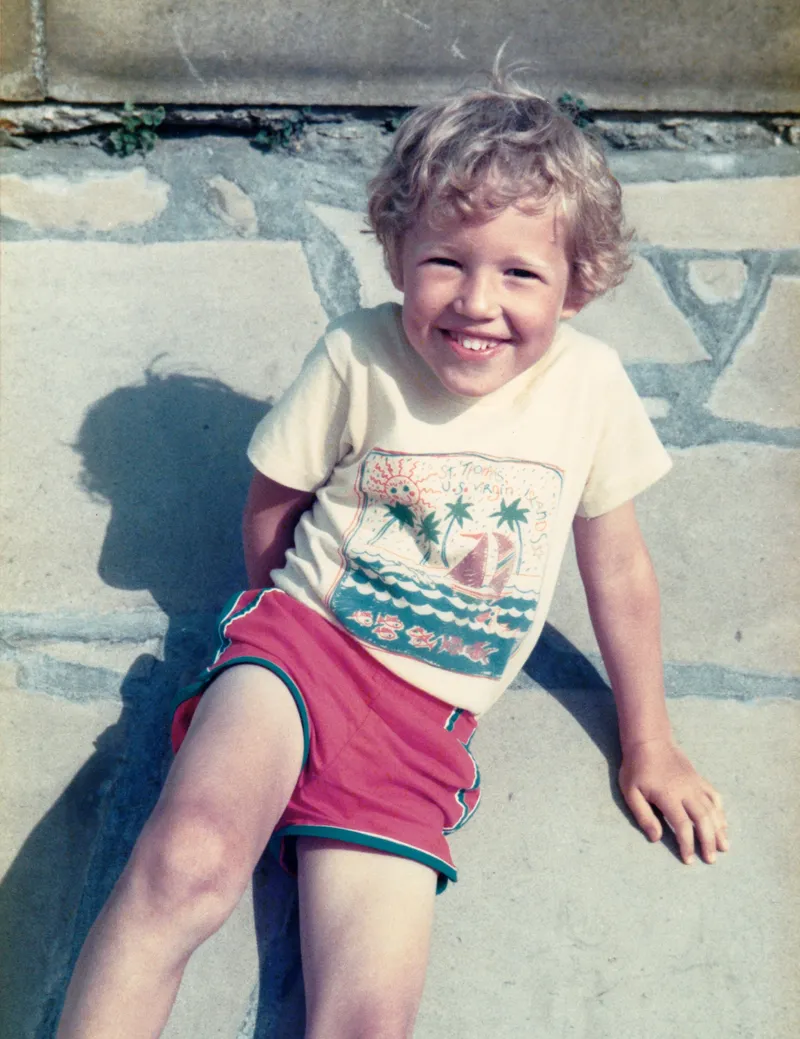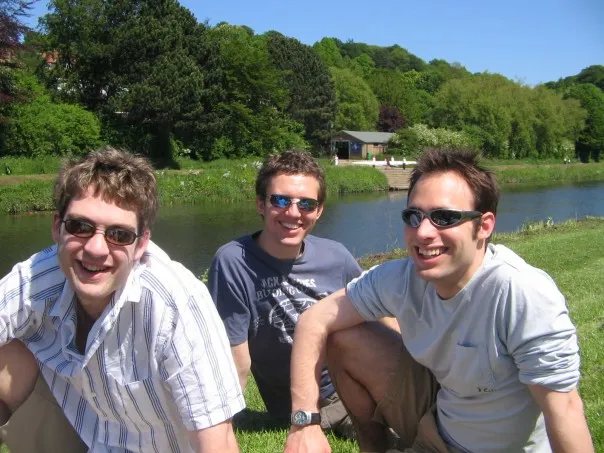[Techie Tuesday] Mike Hearn’s journey: from working on Google Maps and Gmail to building a bitcoin platform
In this week’s Techie Tuesday, we feature Mike Hearn, Lead Engineer at bitcoin and blockchain startup R3. Mike, who was picked up by Google while still in college, worked with the internet giant for many years and has been part of the bitcoin universe since the early 2000s.
Programming and coding aren’t new for Mike Hearn. He started when he was six years old, thanks to his father who was in the television industry in the UK and was interested in computers. He even ran a software business in the early 1980s, but it wasn’t big and Mike’s father decided to stick to the TV industry.
“But, our home always had computers. My father and I would always play on the computer. I was very young and wouldn’t understand much, but there was complete fascination with the buttons and screens. There seemed to be an infinite amount of buttons to push and click, and magic would happen on the screen,” Mike recollects.
Keen on studying and learning new things, Mike wasn’t really academically inclined. “Most of my efforts at school were because people would say I couldn’t study computer science if my grades weren’t good enough,” he says.
In 2004, Mike joined Durham College, UK, but soon realised that the theoretical aspects of computers didn’t interest him much. The computer science department was filled with academics who didn't seem to understand programming very well. This didn’t augur well for Mike, who was used to playing and working on computer systems.
“We had teachers who understood the theory of code, but it would crash when you put that to practical use. All of this put me off academia. But I didn’t quit college as my parents were contributing for my education,” he says.

Mike Hearn as a child
The Google break
At college, Mike continued coding and working on various small projects.
“I would use up the dial-up connection to do open source codes and work since I turned 14 years old and we got internet at home. My name was already there in several projects. I was about 17 when I posted an obscure technical question to some red hat mailing list…this was later picked by Google,” he says.
Mike was still in college, in 2006, when a Google headhunter reached out. He joined Google, seeing this as “an opportunity to get out of academics”. This was early in Google’s lifecycle, and he went through a three-month training programme and began working on server operations.
“Since most of Google’s technology is proprietary, the training was intense and one of the best. We all got on a plane, went to the US, and spent three months in California. An unforgettable experience when you are a 22-year-old.”
An engineer’s playground
Mike describes Google as an “engineer’s playground” and soon began working on Google Maps and Google Earth projects. He was part of the on-call operations team for Maps and Earth for three years, and focused on specialising in satellite imagery and tile serving infrastructure. He worked on traffic management, optimisation, cluster build-outs, production readiness reviews, monitoring of the network infrastructure, and troubleshooting.
“I was part of the team that worked on the rollout of Maps' and on the rendered vector maps,” he says. After working on Maps and Earth, Mike began working on Gmail’s anti-spam filter to tackle outbound abuse.
He wrote several tools to locate and destroy networks of spammer-controlled accounts, and worked on the integration of this spam filter with other Google’s products to ensure automated takedowns of spam content hosted by other Google sites. He also worked on BotGuard with a focus on Gmail anti-abuse, focused on protecting Google sites from automated abuse in general.
Mike also initiated and designed a project to detect malicious automation of Google websites and was part of anti-hijacking projects.

Mike during his University and Google days
Unbridled learning and innovation
Speaking about what he learnt at Google, Mike says he learnt a lot of technical skills but “more importantly, as an engineer, I learnt to make a quick, back-of-the-envelope estimation at Google”.
“This is a basic skill but few people learn it. By back-of-the-envelope estimation, I mean people figuring out what will they need to build something, what are the approximate costs, and does it fit across different dimensions? A few minutes of basic calculations can take you ahead and hone your intuitive skills. Many times, a big idea may seem impossibly expensive or difficult, but you realise it’s doable when you break it down with a pen and paper. This is what would make Google do things that always seem impossible.”
Mike says this allowed people the freedom to ideate and come up with solutions. “Larry Page, Sergey Brin, and Eric Schmidt would always get on stage at every all-hands and throw in the wackiest of ideas. Or someone would present something on product, and would always be urged to think bigger,” he recollects.
Discovering the different forms of money
One of the biggest factors that helped Mike was that most engineers spent 20 percent of their time building new products, which was different from what they were assigned. These individual assignments were focused on individual skill development. Mike also worked on bitcoin projects during this “spare time”.
In around 2010, bitcoin was taking off. By the time Mike left Google - in 2015 - it had become a global phenomenon.
“I had always been interested in new kinds of money since I was a teenager. And bitcoin is a new kind of money. I would read a lot of articles on how the present money system was actually destroying the environment, and the argument seemed compelling. I searched for people designing currencies, but there was nothing on the internet. But, with time, bitcoin started picking up.”
Mike had started looking at the different forms of designing currency. He met people who explained the nature of money, how it works, how banks work, and soon started working on understanding blockchain technology. Bitcoin was not yet mainstream so he started looking closely at enterprise blockchain.
Of bitcoin and blockchain
In November 2015, after he left Google, he built Corda, a blockchain-inspired distributed database for the financial industry. “The platform provides varied features that help reduce the ad-hoc manual synchronisation of data bases,” he says.
During this time he met Richard Brown, CTO of blockchain startup R3. Mike was also working for Vinumeris, a bitcoin consulting and development startup, and they built Lighthouse, a peer-to-peer crowdfunding app that used bitcoin smart contracts. But, he soon teamed up with Richard full time and continued building Corda.
A small startup in North America started using Corda to tokenise gold, a small number of insurance companies started using it for marine insurance, and the journey began.
It was at R3 that Mike understood how much Google had helped him. Apart from bringing in an innovator’s mindset, Google had also given him a different view towards hiring and this came in handy as the Lead engineer.
He believes hiring and interviewing are complex, and it is extremely important to plan for these.
“I have learnt at Google that it is important to sit down before an interview and write down the plan for the interview. Figure out what skills you actually need for the job, and what you will ask the interviewee. It is vital to focus on skill sets as they are hard to quantify. What people put on paper and what they can do are two different things,” he says.
The techie also looks for communication skills, which he feels are extremely important.
Advising all young techies, Mike says “Research things you find inherently interesting. I've often researched things that were very obscure and which didn't seem to have any real likelihood of being interesting or important. And then, been surprised when they became a big thing. For example, bitcoin.
"There are a lot of trends and people will also tell you what’s the next big thing. So, it is important to focus on what you are interested in.”
Edited by Teja Lele


![[Techie Tuesday] Mike Hearn’s journey: from working on Google Maps and Gmail to building a bitcoin platform](https://images.yourstory.com/cs/2/a9efa9c02dd911e9adc52d913c55075e/Techie-Tuesday-8-1612776324701.png?mode=crop&crop=faces&ar=2%3A1&format=auto&w=1920&q=75)
![[Techie Tuesday] Meet the man who went from being a restaurant busboy to heading engineering at OpenText](https://images.yourstory.com/cs/2/a9efa9c02dd911e9adc52d913c55075e/Techie-Tuesday-1612180690782.png?fm=png&auto=format&h=100&w=100&crop=entropy&fit=crop)
![[Techie Tuesday] Robots, ML, Google, YouTube, and more: Meet Branch International’s CTO Benjamin Liebald](https://images.yourstory.com/cs/2/a9efa9c02dd911e9adc52d913c55075e/TT-25-1611588911712.png?fm=png&auto=format&h=100&w=100&crop=entropy&fit=crop)
![[Techie Tuesday] Manikandan Thangarathnam’s journey: From building patented products at Amazon to focusing on tech at Uber](https://images.yourstory.com/cs/2/a9efa9c02dd911e9adc52d913c55075e/TT-1610956277185.png?fm=png&auto=format&h=100&w=100&crop=entropy&fit=crop)




